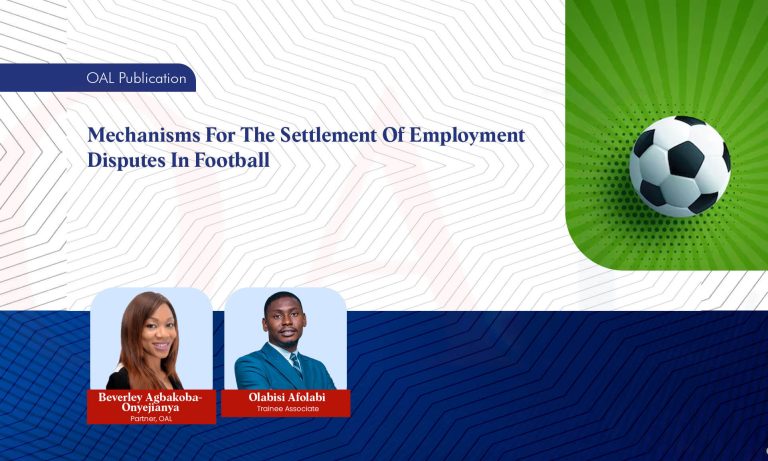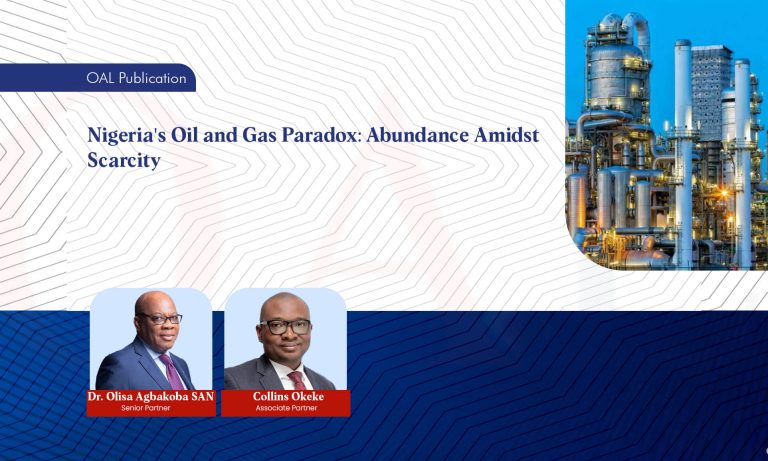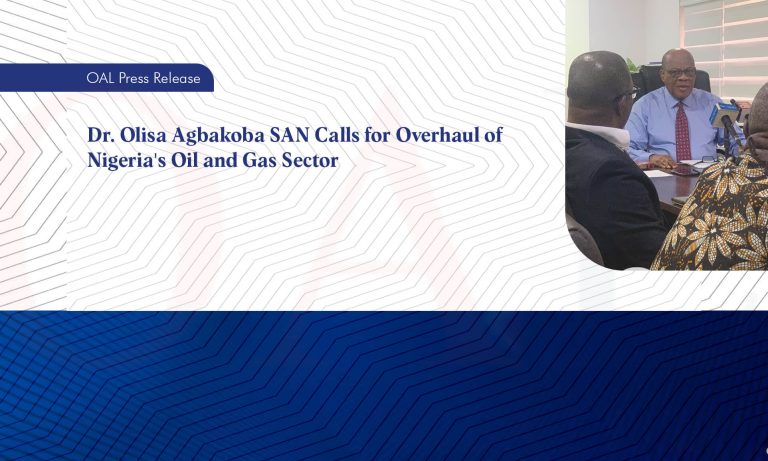
JUDICIARY FUNDING IN NIGERIA: ANALYSIS OF THE SUPREME COURT DECISION IN ATTORNEY GENERAL, ABIA STATE & 35 ORS. VS. ATTORNEY GENERAL OF THE FEDERATION SC/CV/655/2020

INTRODUCTION
For many years the Judiciary in Nigeria has suffered neglect, mostly because it is dependent on the Executive for its funding despite constitutional provisions that guarantee financial autonomy to the Judiciary. This has impacted negatively on the administration of justice and prompted senior lawyers like Olisa Agbakoba SAN and others to approach the courts in several cases to declare the law on the funding structure of the Judiciary. In all the cases, the courts have consistently affirmed the financial autonomy of the Judiciary.
In 2017, the National Assembly altered the Constitution to grant financial autonomy to State Judiciary . Regrettably, the alteration was mostly ignored or observed in the breach by state governments and their executives which prompted President Mohammadu Buhari to sign into law Executive Order No 00-10 of 2020 cited as “the implementation of financial autonomy for state legislature and judiciary Order, 2020”. A key provision of Executive Order No 00-10 of 2020 is the power given to the Accountant-General of the Federation to deduct from the allocations due to a State from the Federation Account, any sums appropriated for the judiciary of a State and pay directly to the judiciary of the State when the State fails to pay the funds directly to the State’s judiciary concerned.
Aggrieved by the Executive Order, perceiving it as an abridgment of their constitutional rights, the 36 States of the Federation approached the Supreme Court and asked the court to declare Executive Order No 00-10 of 2020, unconstitutional and illegal. They also prayed the court to compel the Federal Government to take up funding of capital projects for State High Courts, Sharia Court of Appeal, and Customary Court of Appeal as they are Courts of the Federation, and refund to the 36 states a sum of N66 billion, being the amount which they claimed to have spent on capital projects for the three courts in their respective states. Lead Counsel for the 36 States of the Federation was Augustine Alegeh; SAN and leading the team representing the Attorney General of the Federation, was T.A. Gazali; SAN.
To determine the matter, the Supreme Court constituted a panel of 7 Justices consisting of Muhammed Dattijo JSC, Centus Chima Nweze JSC, Justice Hellen Ogunwumiju JSC, Emmanuel Agim JSC, Ejembi Eko JSC, Adamu Jauro JSC, and Uwani Abba-Aji JSC. The Supreme Court also invited the following 5 Senior lawyers, Chief Adegboyega Awomolo SAN, Olisa Agbakoba SAN, Chief Sebastine Hon SAN, Mahmud Magaji SAN, and Musibawu Adetumbi SAN as amicus curiae (friends of the Court).
ISSUES FOR DETERMINATION
From the pleadings filed by all the parties, the Supreme Court distilled two issues for determination and they include:
ISSUE 1
Having regard to the clear lucid and unambiguous provisions of Section 6 and 81(3) of the Constitution of the Federal Republic of Nigeria, 1999 (as amended) read together with item 21(e) of the third schedule thereof whether the Defendant (the Federal Government or Federation) is not, constitutionally obligated and charged with the responsibility for the funding of all capital and recurrent expenditure of the High Courts, Sharia Courts of Appeal and Customary Courts of Appeal of all the States of the Federation of Nigeria being Courts created under Section 6 of the Constitution.
ISSUE 2
Considering the provisions of Section 6, 20, 81, 120, and 121 of the Constitution of the Federal Republic of Nigeria, 1999 (as amended) whether the Presidential Executive Order No 00-10 of 2020 made by the President of the Federal Republic of Nigeria on 22 May 2020 to compel the plaintiffs (the 36 States of the Federation) to fund State High Courts, State Sharia Courts of Appeal and Customary Courts of Appeal in violation of the constitutional provisions vesting responsibility for funding the said Courts of the Federal Government is not unconstitutional and unlawful.
JUDGEMENT OF THE SUPREME COURT
The Lead Judgement was delivered by Muhammed Dattijo JSC. On issue 1, who under the Constitution is obligated and charged with the responsibility for the funding of the recurrent and capital expenditure of the High Courts, Sharia Courts of Appeal, and Customary Courts of Appeal of all the States of the Federation? In a split decision of 4.3, the Supreme Court relying on its previous decisions in AG FEDERATION V. AG ABIA (NO2) (2002) 6 NWLR (PT764-905 and AG BENDEL STATE V. AG FEDERATION & ORS (1982) 3 NCLR 1 resolved the issue by holding that salaries, allowances and recurrent expenditure of Judicial offices in the Federation are funded from amounts standing to the credit of the Judiciary in the Consolidated Revenue Fund of the Federation. The Court also held that capital expenditures are funded through the Appropriation Bill but went on to state that the power of the National Assembly under section 4 of the Constitution to legislate for the issuance of the sums necessary to meet the capital expenditures of the courts in section 6 of the Constitution from the Consolidated Revenue Fund of the Federation does not extend to the High Courts, Sharia Courts of Appeal and Customary Courts of Appeal of all the States of the Federation.
The Supreme Court disagreed with the position of the Plaintiffs that courts listed in section 6 (5) of the Constitution are established for the Federation (or are Federation courts) and so the Federation or Federal Government should fund its salaries, allowances, recurrent and capital expenditures, and instead held, that Section 6 does not create courts but only vests in the sets of courts judicial powers excisable by them as superior courts of record which is the authority the court requires to adjudicate and determine matters put before them. The Supreme Court held that the High Courts, Sharia Courts of Appeal, and Customary Courts of Appeal of all the States of the Federation are courts established under sections 270 to 281 of the 1999 Constitution and so money appropriated by the National Assembly for capital expenditure cannot enure to them. On the effect of 81 (3) read together with item 21(e) of the third schedule to the constitution, the Supreme Court held that the word ‘capital” as it appears in paragraph 21(e) relates only to Federal Courts in respect of which, the Federal Government presents an Appropriation Bill before the National Assembly. The Supreme Court rejected the plaintiff’s prayers to compel the Federal Government to take up funding of capital projects for State High Courts, Sharia Court of Appeal, and Customary Court of Appeal. The court also rejected Plaintiff’s request for a refund to the 36 states a sum of N66 billion.
On issue 2, whether the President can by Presidential Executive Order No 00-10 of 2020 compel the Plaintiffs to fund State High Courts, State Sharia Courts of Appeal and Customary Courts of Appeal. The Supreme Court in a split decision of 6:1, relying on its previous decisions in AG FEDERATION V. AG ABIA, AG BENDEL STATE AND AG FEDERATION & ORS (1982) 3 NCLR 1 AND AG LAGOS STATE V. AG FEDERATION (2004) 18 NWLR PT 904)1 resolved the issue by holding that the amount in the Federation Account is public revenue which accrues to the Federal, State and Local Governments in each State. The amount or any portion thereof due to the State Governments, on being mandatorily distributed to them, ceases to be retained by the Federal Government on behalf of the beneficiary state. The Supreme Court held that the President by issuing Executive Order No 00-10 of 2020, which empowers the Accountant-General of the Federation to deduct from the allocations due to a state in the Federation Account overstepped his constitutional powers. The Supreme court, therefore, ruled that Executive Order No 00-10 of 2020 is ultra vires, unconstitutional, illegal, and therefore null, void, and of no effect whatsoever.
ANALYSIS OF THE JUDGEMENT
This Judgment is significant as it is the first time the Supreme Court will make a definitive pronouncement on who funds the capital and recurrent expenditures of the Judiciary in Nigeria. The Supreme Court, by this Judgement, has established that section 6(5) (a) – (i) of the Constitution sets out Federal and State Courts, and the Federal Government or Federation is not obligated or charged with the responsibility of funding capital expenditures of “state courts. The Judgement has also reestablished the constitutional boundaries of the powers of the President in section 5 of the Constitution to “execute” and “maintain” the Constitution which does not include the power to deduct from the Federation Account any amount or any portion thereof due to the State Governments. This Judgment has also thrown up some questions, most important of which is, who is constitutionally obligated or charged with the responsibility of funding capital expenditures of “state courts” in Section 6 of the Constitution, and under what provision of the Constitution will this obligation or charge be based? Adamu Jauro JSC, in his dissenting Judgement, is of the view that it cannot be the obligation of States of the Federation in light of Section 121 (3) of the Constitution. I agree with him. Section 121 (3) of the Constitution, which provides for funding of state courts, specially provides that any amount standing to the credit of the Judiciary of a State in the Consolidated Revenue Fund of the State shall be paid directly to the heads of Courts concerned. This is in sharp contrast to the wordings of Section 81(3) of the Constitution which provides that the sum standing to the credit of the Judiciary in the Consolidated Revenue Fund of the Federation shall be paid to the National Judicial Council (NJC) for onward transmission to the heads of Courts created under Section 6(5) of the Constitution. The analogical deduction is that the Constitution vide its provision in Section 121(3), vests the responsibility of funding State Courts not listed under section 6(5) of the Constitution through the head of courts from the Consolidated Revenue Fund of the State.
There is also, Section 162 (9) which provides that any amount standing to the credit of the Judiciary in the Federation Account shall be paid directly to the National Judicial Council for disbursement to the heads of courts established for the Federation and States under section 6 of this Constitution. When section 162(9) is read together with section 81 (3) of the Constitution, there is nothing to suggest the Constitution intends that the amount paid to the NJC be applied to the funding of Federal and State courts differently or discriminatorily. If it had intended that the funding of Federal courts should be different from the funding of State courts from the said amount, it would have expressly stated so which was why Emmanuel Akomaye Agim JSC in his dissenting Judgement was of the opinion that Federal and State courts created by S.6 of the Constitution jointly own any amount standing to the credit of the judiciary in the Consolidated Revenue Fund and Federation Account and have equal rights to the use of the said amount, in the absence of any provision in the Constitution to the contrary.
Strangely, in AG FEDERATION V. AG ABIA STATE AND ORS (supra) the Supreme Court struck down Section 162 (9) of the Constitution for being inconsistent with the Constitution. I reproduce the Judgement of the Supreme Court as follows:
“It is clear from the above provisions that it is the Consolidated Revenue Fund of the Federation, and not the Federation Account, that is charged with the salaries and allowances of judicial officers and recurrent expenditure of judicial offices in the Federation. The Consolidated Revenue Fund of the Federation is established under section 80 of the Constitution. The charge on the Federation Account is clearly inconsistent with section 84 of the Constitution and is, therefore, unconstitutional, notwithstanding the provision of subsection 9 of section 162 which provides:
“9. Any amount standing to the credit of the judiciary in the Federation Account shall be paid directly to the National Judicial Council for disbursement to the heads of courts established for the Federation and the States under section 6 of this Constitution”. Underline mine
It is my respectful submission that this decision was reached per incuriam as the Supreme Court cannot strike down a provision of the Constitution because that amounts to amending the Constitution which the Supreme Court with respect has no powers to do.
CONCLUSION
The Supreme Court must be commended for this Judgement as it provides further clarity on Judiciary funding in Nigeria especially as it relates to capital expenditures of courts in Section 6 of the 1999 Constitution. But the Judgment leaves unanswered a lot of questions. The Supreme Court may need to reexamine the constitution particularly sections 121(3), 81 (3) and 162 (9) which expressly provides for the funding of both federal and state judiciaries and overrule parts of its Judgement in AG FEDERATION V. AG ABIA STATE AND ORS (Supra) in order to adequately resolve and put to a finality this issue when presented again with the opportunity.
Authored by
Collins Okeke LL.M, ACIS
Head, Public Sector Practice Group
Author



